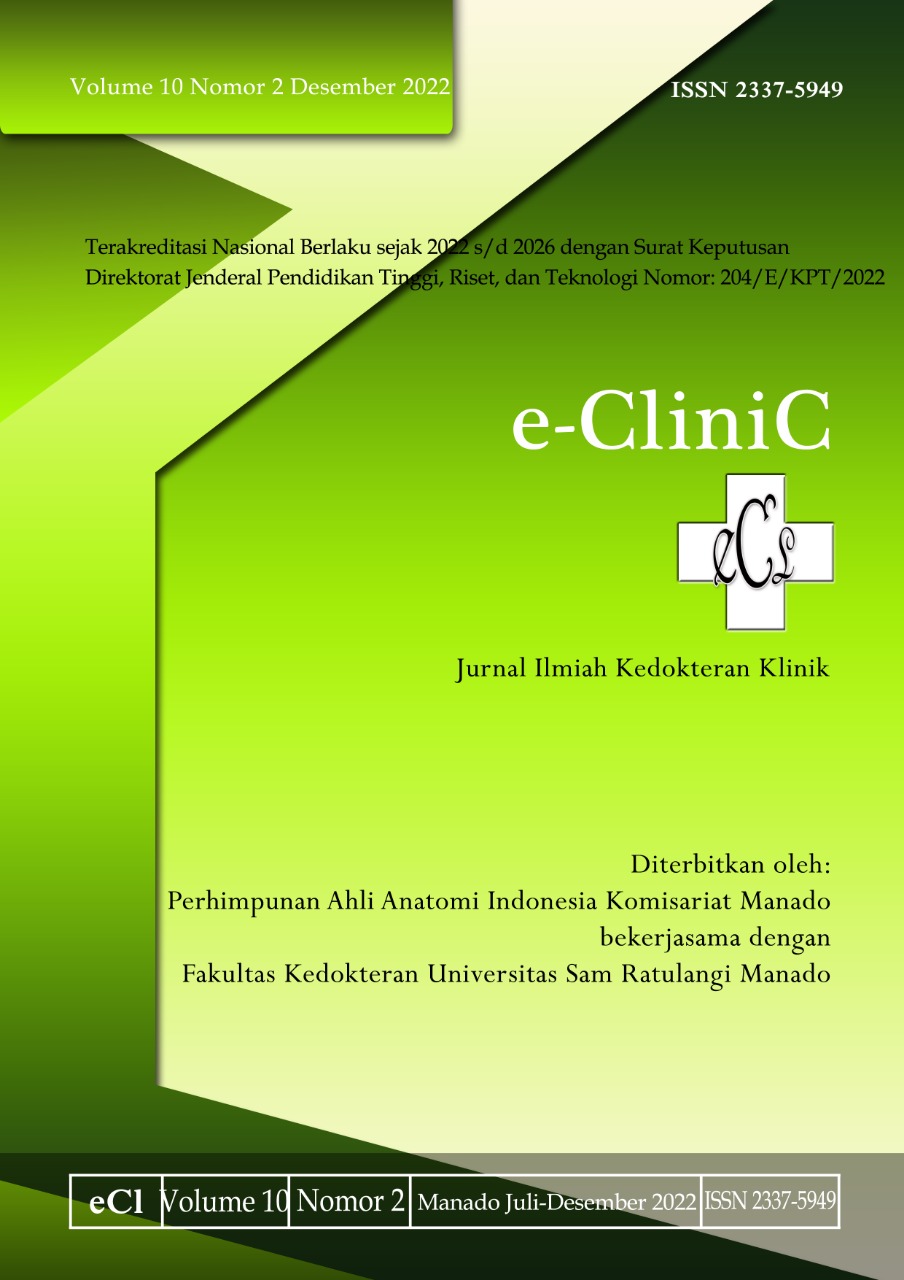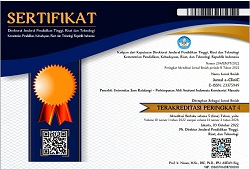Management and Outcome of Pediatric Appendicitis in COVID-19 Era
DOI:
https://doi.org/10.35790/ecl.v10i2.37668Abstract
Abstract: The COVID-19 pandemic has an impact on health services including the management of appendicitis in children both infected and infected with COVID-19. Change in the management of appendicitis in children during the COVID-19 pandemic is still controversial regarding the outcomes arising from this management. This study aimed to determine the management and outcome of appendicitis in children infected and uninfected with COVID-19 during the COVID-19 pandemic. This was a literature review study using databases of PubMed, ClinicalKey and Google Scholar and keywords, as follows: (Management paediatric appendicitis and COVID) AND (outcome paediatric appendicitis and COVID). The results obtained 19 articles. There was a modification in the management of pediatric patients with appendicitis during the COVID-19 pandemic, which was an increase in the use of open appendectomy procedures, especially in COVID-19 positive patients and non-operative management, however, some still maintain the laparoscopic procedure. Meanwhile, the outcome of the management showed that there was no significant difference related to the occurrence of complications, the length of stay in patients with surgery, and the high failure rate in patients with non-operative management, therefore, interval appendectomy was needed. In conclusion, there is a modification in the management of appendicitis in children during the COVID-19 pandemic with insignificant outcome in the operative action and failure related to the non-operative management.
Keywords: management; outcome; pediatric appendicitis; COVID-19
Â
Abstrak: Pandemi COVID-19 memberi dampak pada pelayanan kesehatan termasuk manajemen apendisitis pada anak baik yang terinfeksi maupun tidak terinfeksi COVID-19. Perubahan manajemen apendisitis pada anak selama pandemi COVID-19 masih menjadi kontroversial terkait dengan luaran yang terjadi akibat manajemen tersebut. Penelitian ini bertujuan untuk mengetahui manajemen dan luaran apendisitis pada anak yang terinfeksi maupun tidak terinfeksi COVID-19 selama pandemi COVID-19. Penelitian ini berbentuk literature review menggunakan database dari PubMed, ClinicalKey dan Google Scholar dengan kata kunci (Management paediatric appendicitis and COVID) AND (outcome paediatric appendicitis and COVID). Hasil penelitian mendapatkan 19 artikel. Terjadi modifikasi dalam manajemen pasien anak dengan apendisitis selama pandemi COVID-19, yaitu peningkatan dalam penggunaan prosedur apendektomi terbuka terutama pada pasien positif COVID-19 dan manajemen non-operatif, namun beberapa diantaranya tetap memper-tahankan dilakukannya prosedur laparoskopi. Luaran dari manajemen yang dilakukan menunjukkan bahwa tidak didapatkan perbedaan bermakna terkait terjadinya komplikasi, masa rawat inap pada pasien dengan tindakan operatif, dan tingginya tingkat kegagalan pada pasien dengan manajemen non-operatif; oleh karena itu apendektomi interval masih diperlukan. Simpulan penelitian ini ialah adanya modifikasi dalam manajemen apendisitis pada anak selama pandemi COVID-19 dengan luaran yang tidak berbeda bermakna dalam hal tindakan operatif dan kegagalan terkait manajemen non-operatif.
Kata kunci: manajemen; luaran; apendisitis pada anak; COVID-19Downloads
Additional Files
Published
How to Cite
Issue
Section
License
COPYRIGHT
Authors who publish with this journal agree to the following terms:
Authors hold their copyright and grant this journal the privilege of first publication, with the work simultaneously licensed under a Creative Commons Attribution License that permits others to impart the work with an acknowledgment of the work's origin and initial publication by this journal.
Authors can enter into separate or additional contractual arrangements for the non-exclusive distribution of the journal's published version of the work (for example, post it to an institutional repository or publish it in a book), with an acknowledgment of its underlying publication in this journal.
Authors are permitted and encouraged to post their work online (for example, in institutional repositories or on their website) as it can lead to productive exchanges, as well as earlier and greater citation of the published work (See The Effect of Open Access).







